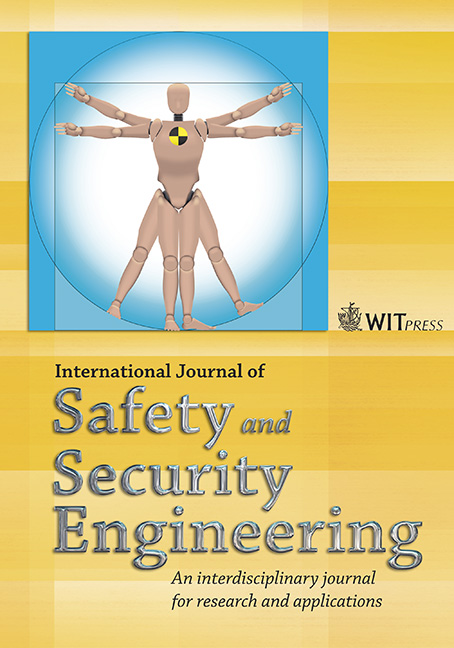CLUSTER ANALYSIS OF FATAL ACCIDENTS SERIES IN THE INFOR.MO DATABASE: ANALYSIS, EVIDENCE AND RESEARCH PERSPECTIVES
Price
Free (open access)
Volume
Volume 3 (2013), Issue 4
Pages
14
Page Range
318 - 332
Paper DOI
10.2495/SAFE-V3-N4-318-332
Copyright
WIT Press
Author(s)
M. LOMBARDI & G. ROSSI
Abstract
The state of the application of the techniques of cluster analysis does not include the work accidents. The applications more established for statistical data analysis include pattern recognition, image analysis and information retrieval. The aim of this study is to provide a quantitative assessment, based on techniques of statistical processing of historical data in order to highlight the causality between the accident and predictive recurring events. On the basis of information provided by the analysis, it is possible to propose preventive strategies targeted to reducing the number of accidents (mainly the fatal accidents). Based on the collection of fatal accidents in the Infor.MO database (INAIL), we proceeded to aggregate accident cases registered in order to provide cluster analysis, which with reference to generators of the danger flow mortal areas, could show typical accidents, namely preferential genesis that, proposing the causes of the same energy mortal flow, could explain a large number of events. In order to run the analysis, a methodological assumption that describes the phenomenon of accidents, like any algebraic entity, as the case represented in algebraic space, is requested. Then dimensions useful to describe the phenomenon are then generators of the danger areas. Based on this premise, each accident can be represented by the Boolean n-tuple of coordinates in space Rn. This purpose allows to transform the descriptions of accidents in algebraic and statistic case study on which to apply the statistical cluster analysis protocol. Applying this method to the analysis of fatal accidents in the Infor.MO database, related to the ATECO Construction Sector (F), with particular reference to the ‘falls from heights’, has showed successful clustering. The results of the analysis aim to check the effective purposes of prevention/protection, in a perspective of maximum efficiency.
Keywords
Accidents at work, Boolean analysis, cluster analysis, falls from heights, fatal accidents database, slipping.




